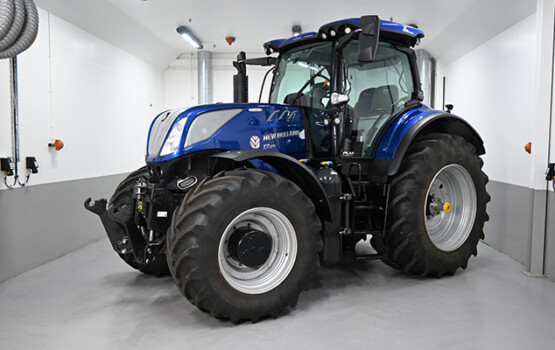Portal for more climate-friendly mobility
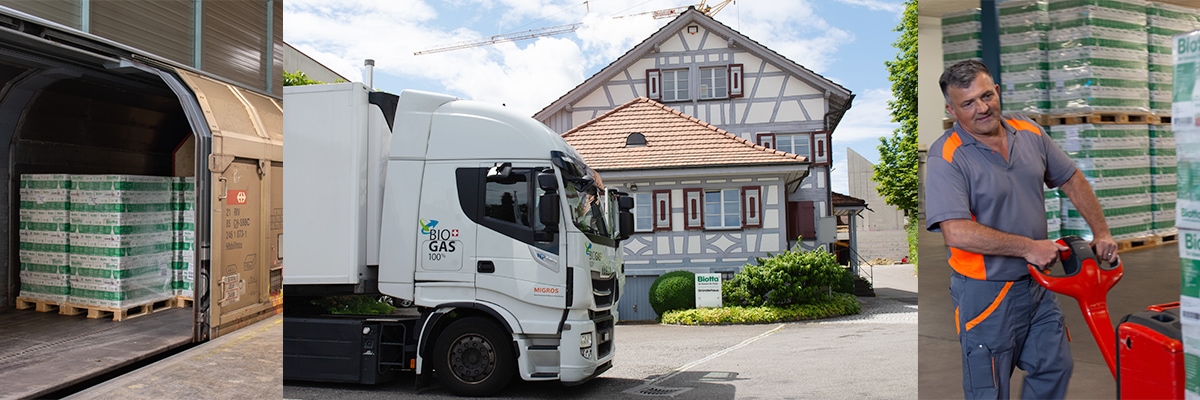
Living the circular economy with biogas
Biotta juices stand for the essence of nature and sustainability – since 1957. Together with Migros, they are now transported in an even more climate-friendly way. Instead of returning empty to the distribution centre in Gossau SG, the biogas truck of Migros Ostschweiz now transports pallets of Biotta juices.
 The Swiss juice manufacturer Biotta has been producing a wide variety of natural vegetable and fruit juices since 1957. Source: Biotta
The Swiss juice manufacturer Biotta has been producing a wide variety of natural vegetable and fruit juices since 1957. Source: Biotta
From the field to the bottle, the Swiss juice manufacturer Biotta from Tägerwilen in Thurgau tries to be as sustainable as possible. The company switched to organic farming as early as 1951, when no one was calling for organic or organic labels – and then launched the first Biotta juice in 1957. Incidentally, the freshly pressed organic carrot juice is still one of the bestsellers in the range of natural vegetable and fruit juices and other sustainable organic products, which has grown continuously over the past decades.
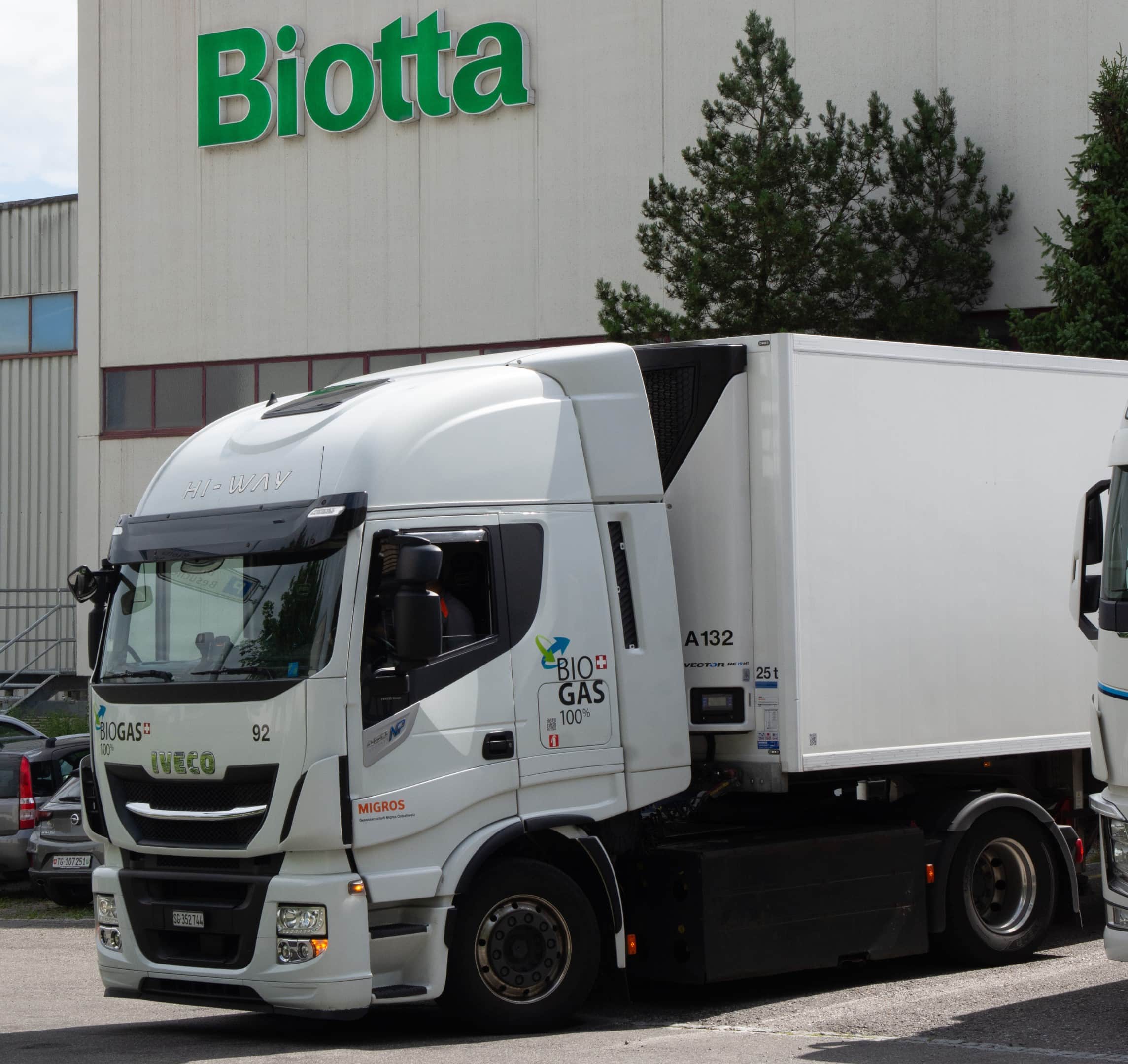 Migros’ biogas truck now picks up fresh Biotta juices by the pallet after the last branch delivery. Source: GMOS – Natalie Löhrer
Migros’ biogas truck now picks up fresh Biotta juices by the pallet after the last branch delivery. Source: GMOS – Natalie Löhrer
Since 2022, the company has been operated in a climate-neutral manner and is certified by Myclimate. This means that all CO2 emissions generated by Biotta for the production of its juices are avoided whenever possible and, where this is still not possible, offset through recognised carbon offset projects. “Sustainability is deeply rooted in our company. It has therefore always bothered me that we cannot transport our juices by rail to the Swiss distribution centre in Suhr,” explains Peter Spühler, Head of Internal Sales.
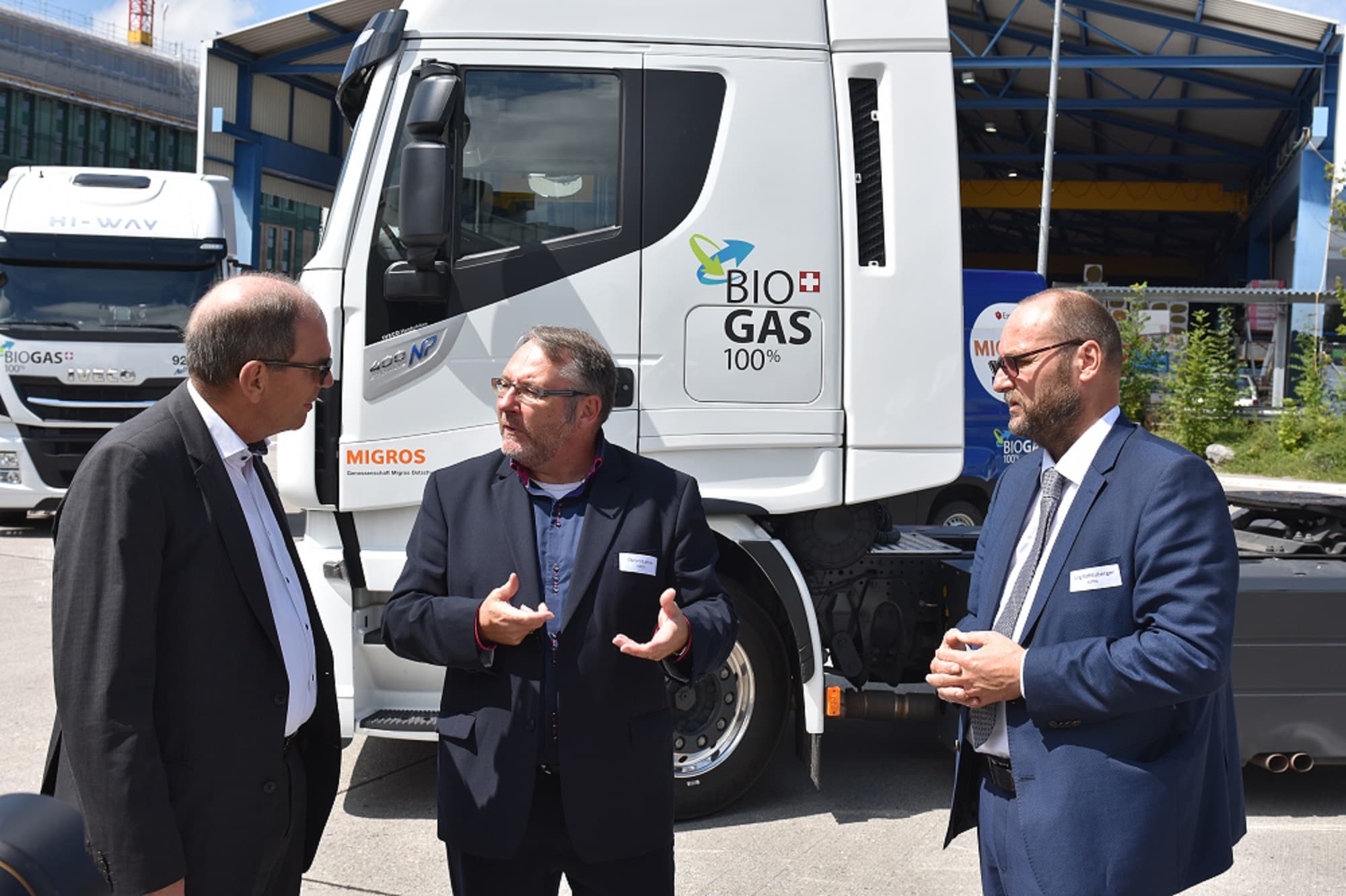 Daniel Balmer, Head of Transport Logistics at Migros Ostschweiz (centre), explains the advantages of biogas trucks and combined freight transport to Bruno Dammann (left), member of the St. Gallen cantonal government, and Jürg Röthlisberger, Director of the Federal Roads Office. Source: GMOS
Daniel Balmer, Head of Transport Logistics at Migros Ostschweiz (centre), explains the advantages of biogas trucks and combined freight transport to Bruno Dammann (left), member of the St. Gallen cantonal government, and Jürg Röthlisberger, Director of the Federal Roads Office. Source: GMOS
Since the Biotta manufactory has no connection to the SBB network, this wish for sustainable transport by rail has always seemed unrealisable – until Spühler met Daniel Balmer, head of transport logistics at Migros Ostschweiz. For the logistics expert, it has long been clear that the task defines the type of drive and that the various alternative types of drive should not be played off against each other. Balmer prefers to combine them. He proves this, for example, with almost CO2-neutral deliveries to a Migros market and restaurant in the Engadine. Since July 2021, a CNG truck powered 100 per cent by Swiss biogas has been driving from the operations centre of Migros Ostschweiz in Gossau SG to the railway station in Landquart GR. There, the flatbeds will be loaded onto the Rhaetian Railway and transported either through the Vereina Tunnel or via Albula to the Migros branch Porta Samedan in Samedan GR.
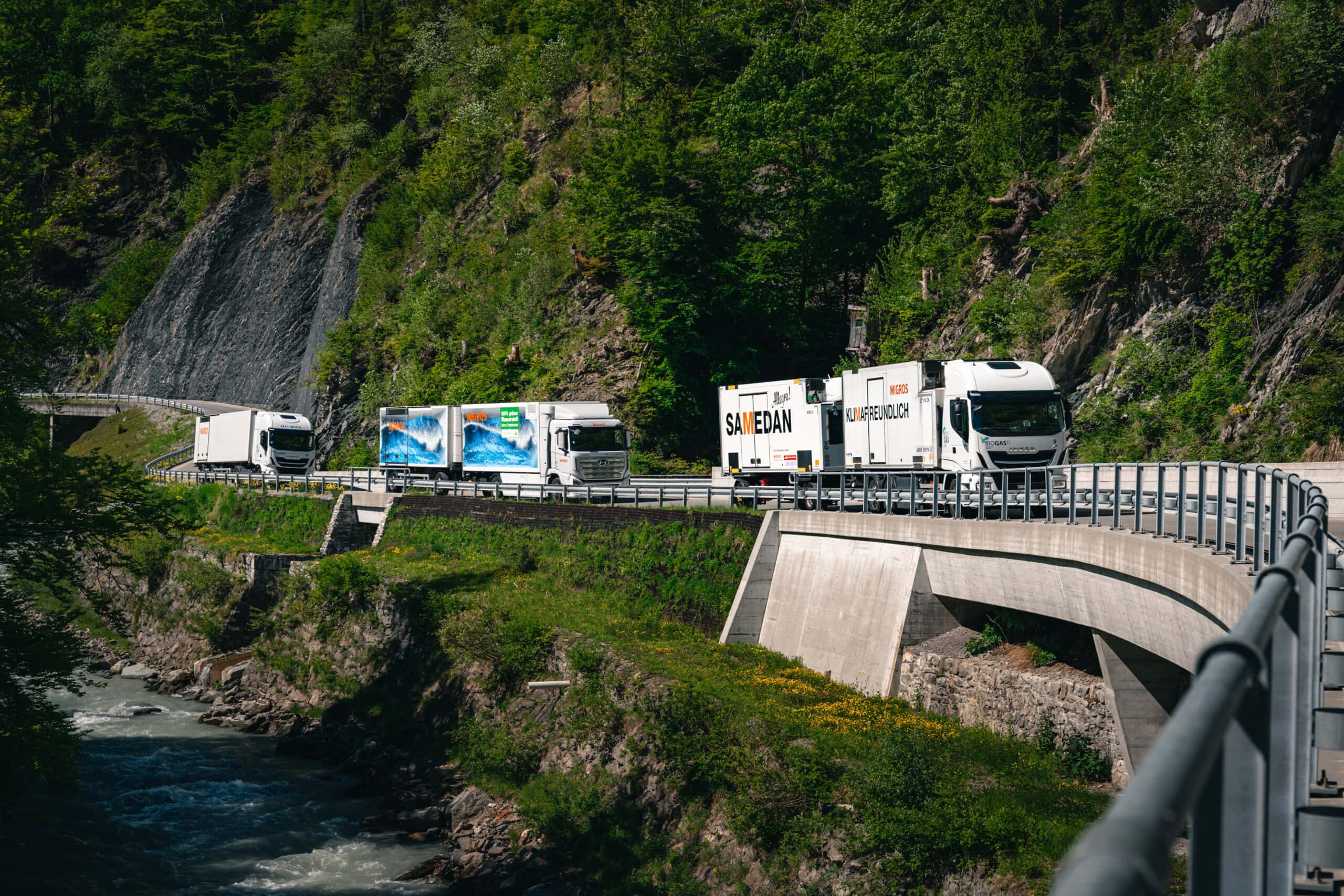 Thanks to transport by rail and biogas truck, even the Migros branch in the Engadine can be supplied with fresh produce in an almost CO2-neutral manner. Source: Migros/Ineedcontent.ch
Thanks to transport by rail and biogas truck, even the Migros branch in the Engadine can be supplied with fresh produce in an almost CO2-neutral manner. Source: Migros/Ineedcontent.ch
Daniel Balmer and Peter Spühler have now jointly found a way for Migros to prevent empty runs and for the popular organic juices to be transported by rail in an almost CO2-neutral manner since the beginning of 2023 – a clever collaboration between two companies who care about nature and who are doing something to reduce emissions in logistics and freight transport by practising a circular economy. And this is how simply it works: Migros driver Avdo Kvrgic not only delivers fresh produce, drinks, spices, animal feed and other products to various Migros branches in eastern Switzerland with his biogas semi-trailer truck, but after his last stop at the Seepark branch in Kreuzlingen TG, he does not drive directly back to the company headquarters loaded with a few returns at most.
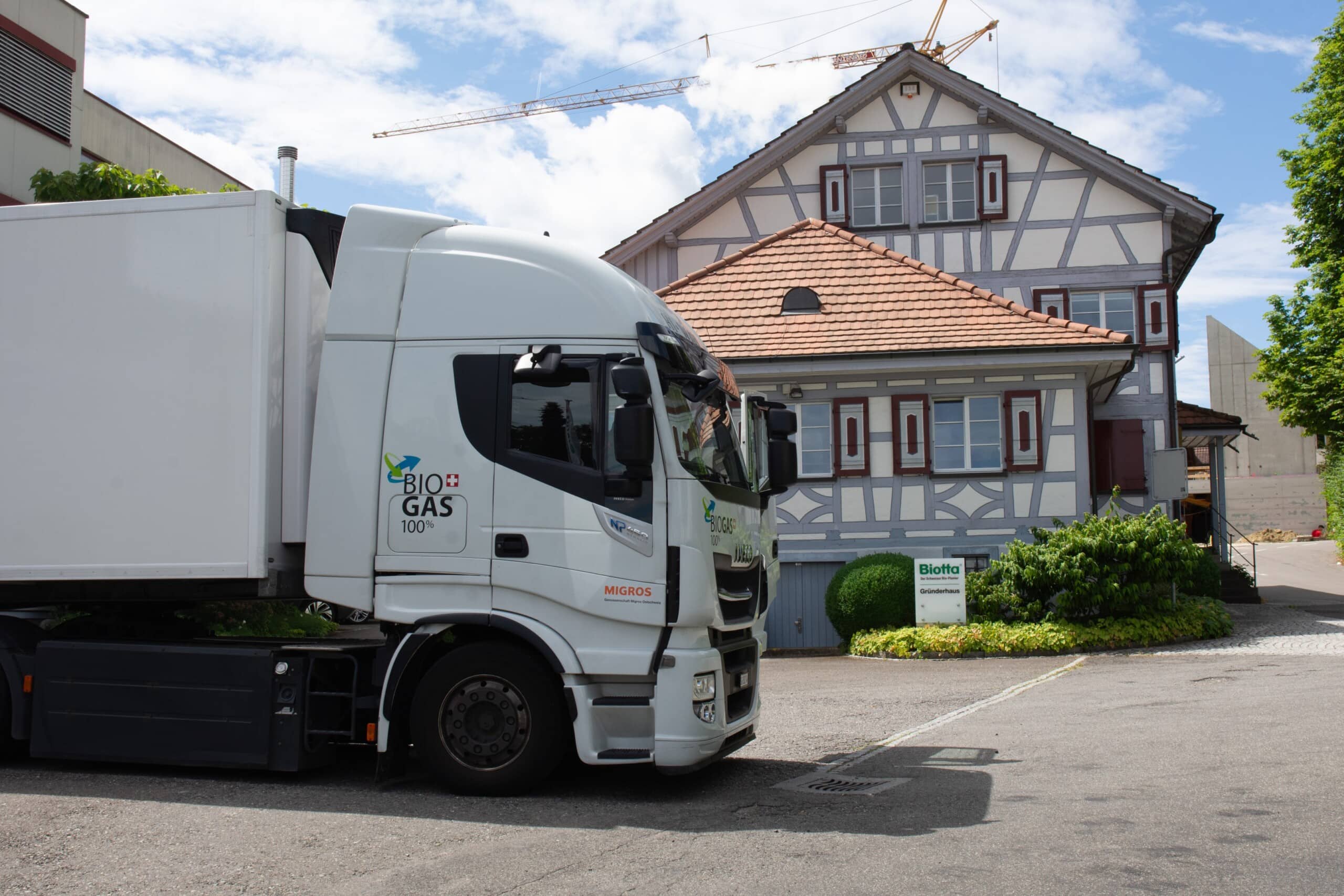 The biogas truck in front of the founder’s house and headquarters of the juice manufacturer Biotta in Tägerwilen TG. Source: GMOS – Natalie Löhrer
The biogas truck in front of the founder’s house and headquarters of the juice manufacturer Biotta in Tägerwilen TG. Source: GMOS – Natalie Löhrer
Instead, Kvrgic, who has been on the road for Migros Ostschweiz for 22 years and has been proudly driving a CNG-powered truck with Swiss biogas in the tank for four years, makes a stopover at Biotta in Tägerwilen once a week on his way back. There he loads 19 pallets of vegetable and fruit juices into the trailer and drives to the company headquarters in Gossau SG with over 15 tonnes of valuable luggage instead of empty. A colleague then loads the Biotta juices into the railway wagon with a forklift. The next morning, the wagon sets off on its journey to Suhr.
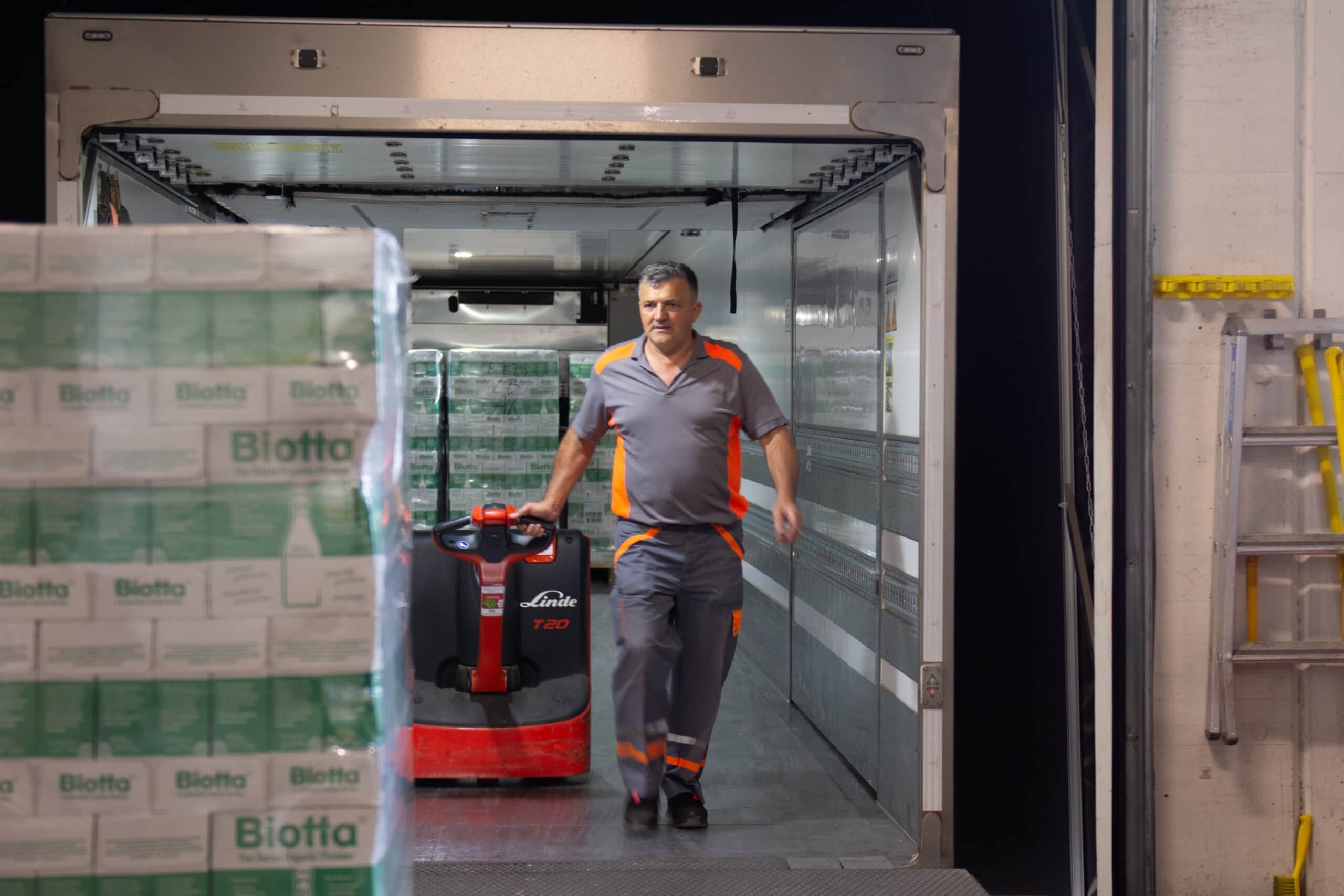 Migros driver Avdo Kvrgic loading his biogas truck with Biotta juices. Source: GMOS – Natalie Löhrer
Migros driver Avdo Kvrgic loading his biogas truck with Biotta juices. Source: GMOS – Natalie Löhrer
Thanks to the cooperation between Biotta and Migros Ostschweiz, the existing transport network is optimally utilised. “The transport of the juices from Tägerwilen to Gossau is planned into the return route of the branch delivery. There are no extra kilometres,” Daniel Balmer emphasises. The same applies to the rail transport from Gossau to Suhr: every day, an average of 48 freight wagons full of Migros products reach the Gossau operations centre, and these wagons also have to return to Suhr at some point. “We may deliver around 2.5 million bottles to Migros every year – thanks to the new transport route, we can save around three tonnes of CO₂ in the process,” Spühler calculates.
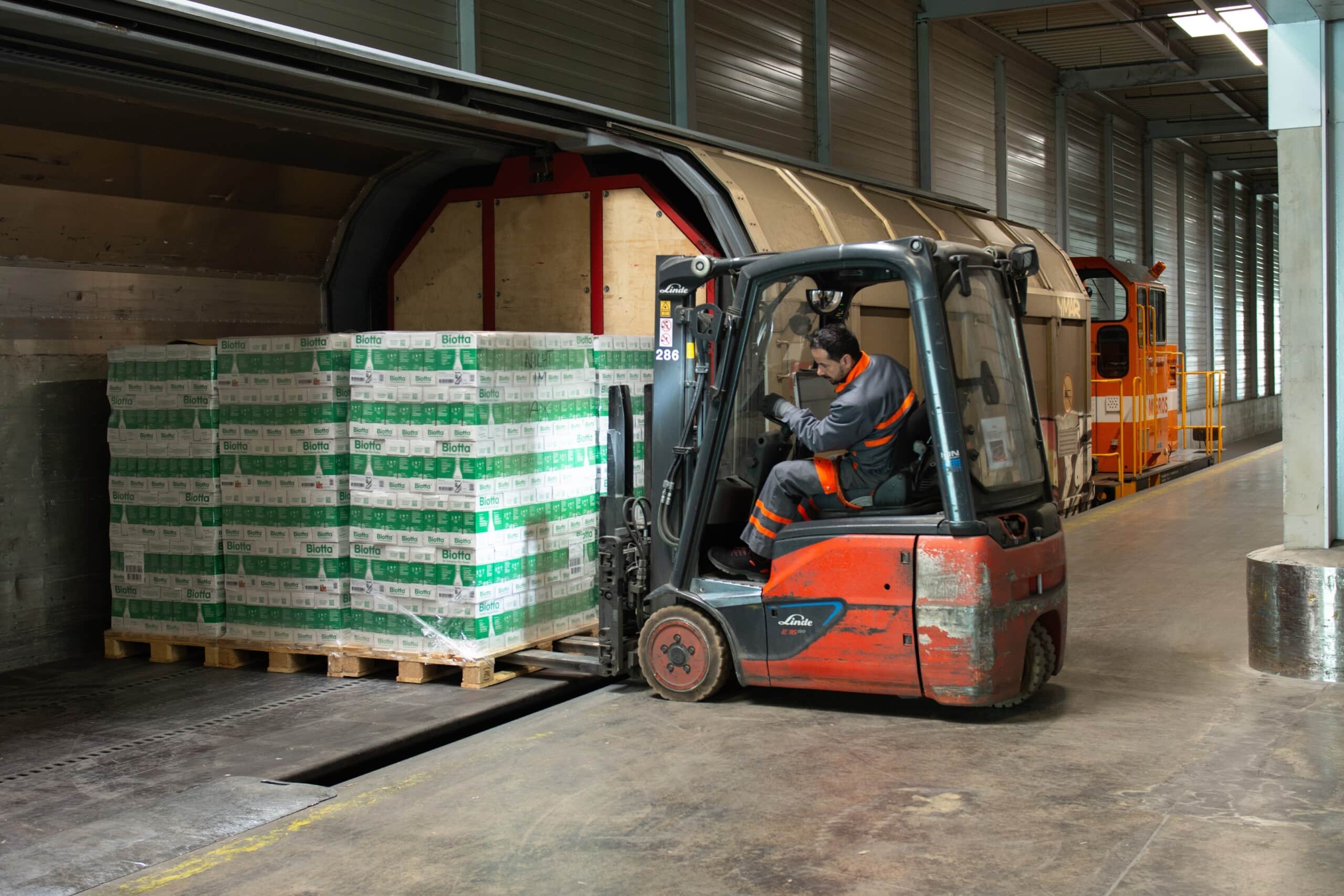
Thanks to the clever combination of the different transport variants, Biotta can save around 3 tonnes of CO2. Source: GMOS – Natalie Löhrer
This is an example of a circular economy in action that should set a precedent: Empty runs should be avoided even with biogas trucks, which are almost CO2-neutral on the road. And besides Migros and Biotta, the environment also benefits from the cooperation between the companies! (pd/jas, 8 August 2023)
You might also be interested in
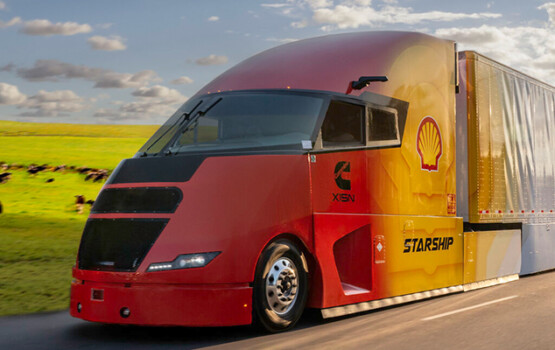
Shell Starship on record hunt
